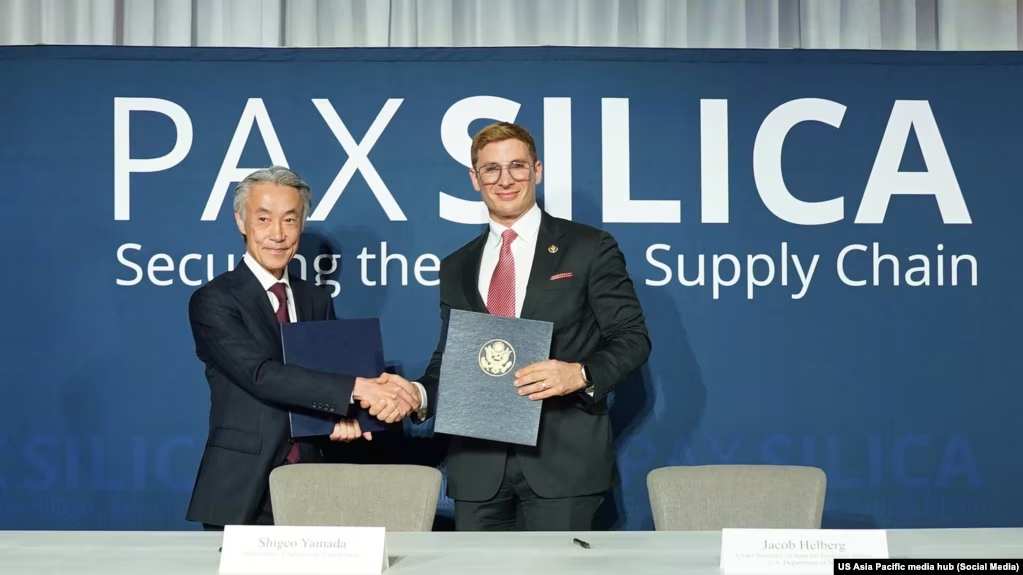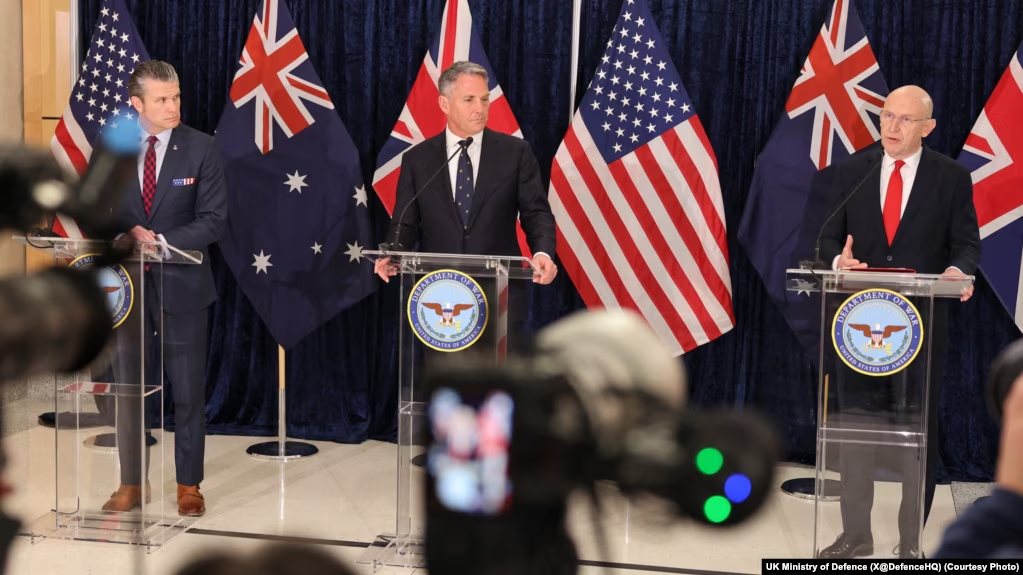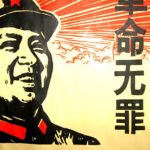November 28, 2017 8:06 AM

This image taken from video released on Nov. 28, 2017, by the Intermediate People’s Court of Yueyang, Taiwanese activist Lee Ming-che, left, and his fellow defendant Peng Yuhua of China stand during a court session in Yueyang, Nov. 28, 2017.
A court in China’s southern Hunan province has sentenced Taiwanese rights activist Lee Ming-che and his alleged Chinese national accomplice Peng Yuhua to five and seven years in prison respectively on charges of inciting state subversion.
Lee is the first foreign non-governmental organization (NGO) worker to be sentenced after China’s new Foreign NGO Management Law went into effect in January.
International rights groups denounced both Lee’s and Peng’s ruling, calling it “preposterous.”
They said the verdict will have a chilling effect among NGO workers and rights defenders, both at home and abroad, if they continue to promote democratic values and human rights in China, which authorities there consider politically sensitive.
Criminalizing communication
“The law is so broad and the evidence is so flimsy. That is basically just criminalizing communication,” Frances Eve, Researcher of Chinese Human Rights Defenders, told VOA.
The researcher called Tuesday’s verdict a mockery of China’s membership in the United Nations Human Rights Council and accused the Chinese government of being two-faced.
“The [Chinese] government is very two-faced. It will go say to the international community that ‘we rule the country according to the law’ [and] that ‘we’ve signed the International [Human Rights] Treaty’,” Eve said.
“Inside the country, that’s a completely difference face. If you speak about democracy, you make a joke about Xi Jinping, you talk about social issues, all of that can result in a prison sentence,” she added.
Guilty of state power subversion
On Tuesday, the court in the city of Yueyang found both Peng and Lee guilty of having organized a private group and set up discussion groups on social media platforms including QQ, Wechat and Facebook since 2012 to advocate for a democratic multi-party system and free elections in a bid to oust the ruling Communist Party.
According to video clips posted on the court’s official Weibo account, the court concluded that Peng, 37, was the main initiator, who established the group and organized private gatherings to discuss the political pursuit for a multi-party system, while Lee, 42, played an active role.
In the video clip, Judge Bin Dai said that although their behavior has constituted subversion of state power, the court has awarded both what it called lenient jail terms after having taken into consideration their earlier confession in court.
“The court has concluded that the accused Peng and Lee have established an illegal group with an aim to subvert state power and topple the socialist system. They’ve also come up with a plan, measures and steps to subvert state power and attack the [political] system enshrined in the Constitution, which posed a serious threat to national security and stability,” Dai said.
No appeal?
Both Lee and Peng would also be deprived of political rights for two years, the judge added.
In response, they both told the court that they will not appeal.
Taiwan’s government called Lee’s verdict “unacceptable.”
In a press statement, Taiwan’s Presidential Office demanded the immediate release of Lee.
“It’s regrettable that Lee’s case has not only seriously hurt cross-strait relations, but also challenged Taiwanese people’s insistence in democracy and freedom,” the statement said.
“To spread democracy isn’t a crime… [The verdict] will also strike at China’s international image,” Taiwan’s Mainland Affairs Council added in another statement.
To alienate Taiwan
Pro-independence lawyer Hsu Yung-ming of New Power Party, moreover, called Lee’s case a “ridiculous” show trial that will only further alienate Taiwan from China. The trial Hsu said is a showcase for the huge discrepancy between Taiwan and China in terms of personal freedoms and rule of law.
“The people of Taiwan will be completely perplexed that why anyone would willingly refuse to appeal such a conviction. This shows the huge gap between us and China,” Hsu said, adding that he suspects Lee was coerced into refusing to appeal.
Lee’s wife Lee Ching-yu also defended her husband’s innocence.
In a written statement, released by Taiwanese Association for Human Rights, she said she took pride in Lee’s devotion and sacrifice for the pursuit of democracy in China.
After the trial, she also vowed to continue her fight for Lee and to seek support from the international community, including her planned testimony to the UN in February.
“What the [Chinese] court has put Lee Ming-che on trial [for] falls into the scope of speech freedom, which should be considered not guilty in any civilized country,” she was quoted by local media outlets.
International rights groups, including Amnesty International, have called on world governments to continue to exert pressure on China authorities to address the plight Lee and many other Chinese rights defenders face.
“We would consider him [Lee Ming-che] to be arbitrarily detained and a prisoner of consciousness because he was doing nothing more than peacefully expressing his opinions, trying to work peacefully with other actors and improving human rights,” said Hong Kong-based Roseann Rife, East Asia research director at Amnesty International.
Rife also urged China authorities to acknowledge the progressive role the civil society and NGOs can play and engage with them in addressing systemic problems and finding solutions for China.









